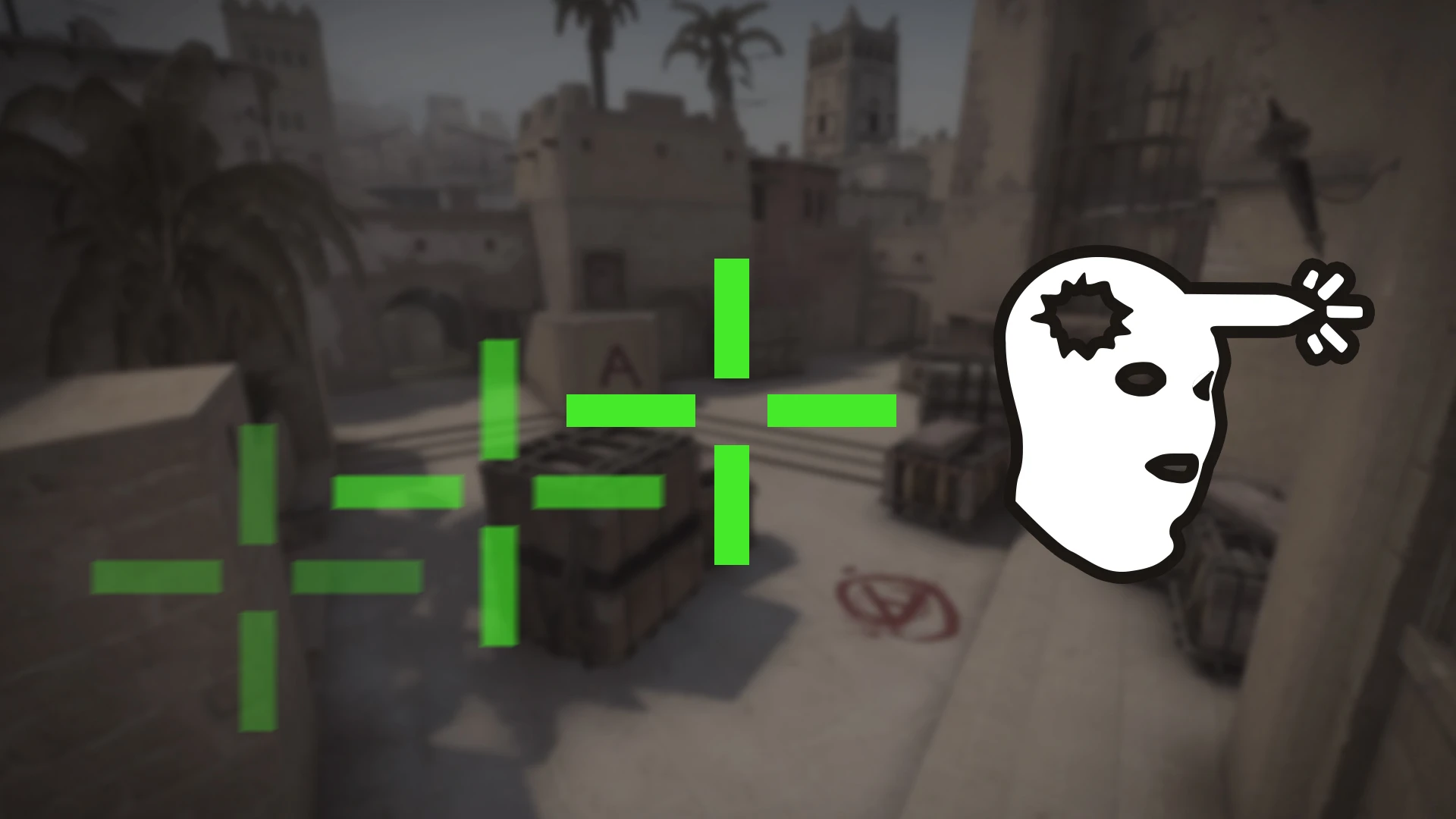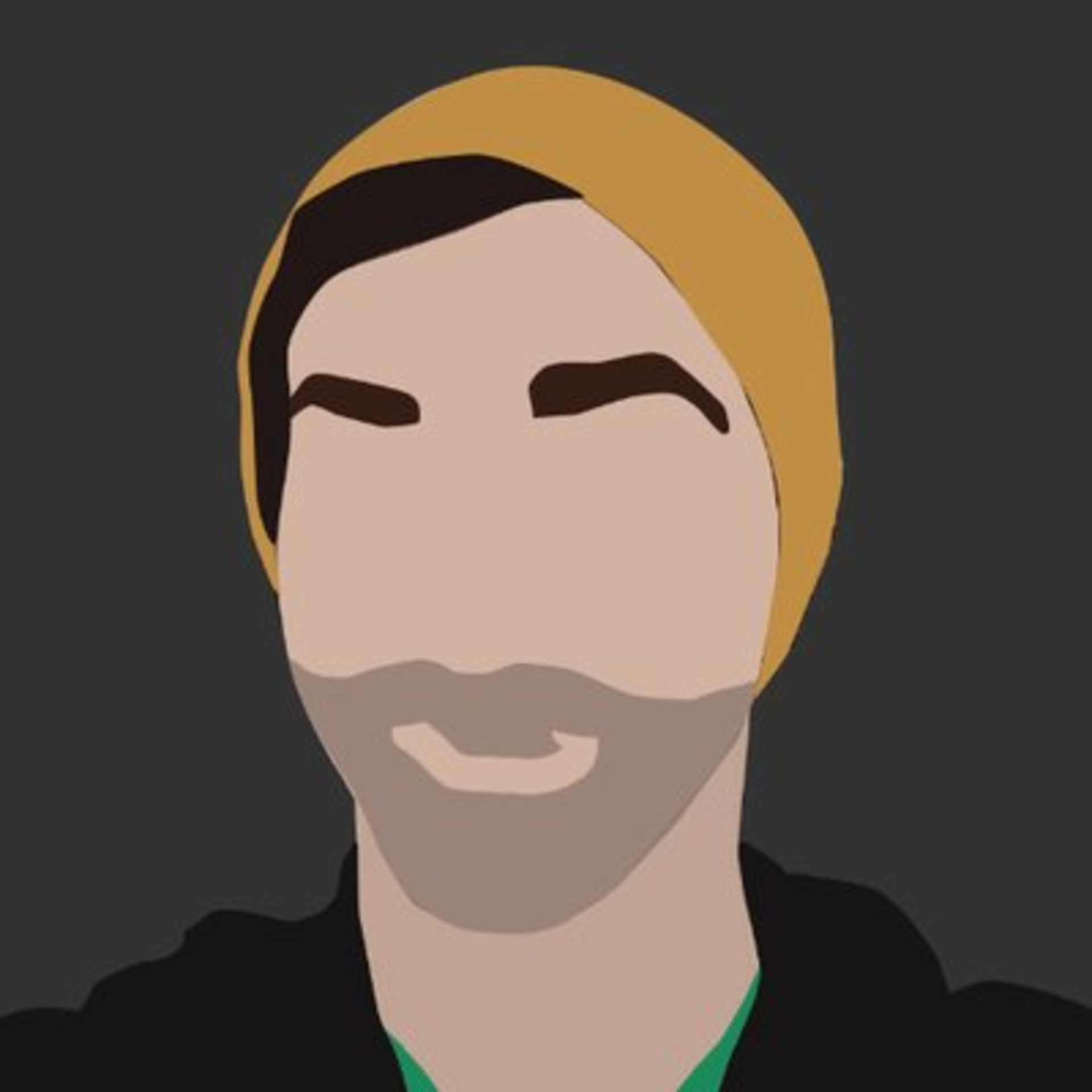
How to Pre-aim in CSGO by Mastering Your Crosshair Placement
This guide starts from the basic tricks and closes with a few advanced.

It's little surprise that you won't get far in Counter-Strike without good aim. Movement, usage of utility, and team-play is critical but aiming is usually one of the aspects you must master as you begin to get competitive. Who wants a bottom-fragger teammate?
In this guide I will discuss various ways to improve your aim in CS:GO through crosshair-placement (also known as pre-aiming). If you're new to CSGO you might want to read our 5 tips to improve in any FPS before diving into this guide.
Content:
- Why does crosshair-placement matter?
- How does crosshair-placement work?
- Crosshair-placement is a workaround for real life limitations
- Tips to improve your crosshair-placement
- Bonus tips to counter readers of this guide
- Training tips for crosshair positioning
Why does crosshair-placement matter?
The short answer is that it simply makes you faster at getting the kill.
By already pre-aiming specific spots and maintaining your crosshair at a certain elevation while also keeping to angles, you can eliminate most of the aiming required to stay ahead of your opponents (active aiming).
Instead of having to move your whole arm, swiping all across your mousepad and snapping to a target (reactive aiming), you can make micro-adjustments or go for the kill directly.
This might seem trivial but in a game of CS where every millisecond counts, good crosshair-placement can be the determining factor in a gunfight, so keep in mind:
Active aiming is always faster than reactive aiming!
How does crosshair-placement work?
Now that you know why pre-aiming is so important, let’s dig a little deeper.
Crosshair-placement is essentially made out of two parts, the x-axis and the y-axis on your monitor.
When talking about aiming in CS, most people only focus on the Y-axis or how high you should aim. This is indeed an important part of pre-aiming because you want to keep your crosshair at headshot level for maximum potential damage.
However, if you combine it with smart X-axis positioning you'll essentially be using an effective aim technique called angle-snapping (not the mouse sensor setting). This part of the technique involves keeping your crosshair as close as possible to holding positions such as cover objects or walls, where enemies hide behind or pop out from.

If you were to only aim with the Y-axis in mind, you might have the headshot-placement right, but you would still have to actively aim a huge deal horizontally. That movement takes more time than you might have in a duel and your enemy will probably get to that headshot before you do.
Similarly, if you only use your X-axis you might have your crosshair locked on the enemy when turning a corner, but you won’t be able to maximize your damage since you might be aiming at their feet or stomach.
An exception for AWP and SMGs
Using this crosshair approach doesn’t work with AWP the same way, since you want to hit center of mass and therefore you won’t be aiming at their heads. Additionally, the scope-in time for maximum accuracy requires you to briefly wait, since firing too soon will result in a random bullet.
Similarly, SMGs sometimes are better used when spraying and praying, where center of mass is also more favorable.
Crosshair-placement is a workaround for real life limitations
There’s another aspect that makes crosshair-placement absolutely critical and that’s your real life, physical limitations such as desk-space and the range of motion of your arm.
Depending on your sensitivity these limitations might prevent you from even attempting a 180° across your screen. Thus, having your crosshair at the right spot will make it a lot easier for you to aim, since most of the time you only have to account for the spray-pattern and slight real-life movements.
Additionally, you will have to keep in mind that your arm and hand are a lot more precise when aiming horizontally rather than vertically. The reason for this is that your hand can swivel using your wrist, and your arm can swivel by resting on the elbow or part of your arm. Having two anchor points for rough – and fine – aim. When moving vertically, you can push your arm forward or, depending on your mouse-grip, use your fingers to aim vertically. Then again, due to the usually low sensitivity in CS, there is just a lot less vertical mobility compared to horizontally.
Think of it this way: when you are writing something with a pen, you can more easily write horizontally and have to readjust your hand less frequently compared to starting a new line below. Of course, you could simply hold up your arm all the time, but that would just be more tiring and wouldn’t do much besides increasing tension in your arm, which doesn’t really help with aiming.
Tips to improve your crosshair-placement
What are things you could do to actually improve your crosshair-placement? There are a couple of simple things that will help you with that!
#1 Vertical: Use your teammate’s position
When starting out, or even if you’ve been playing for a while, it can be hard to find the proper vertical position to set your crosshair at. An easy tip is to use the height of your teammates as reference. As long as the heads of your teammates and enemies are on the same elevational plane, you will always aim at their head no matter how close or far away the enemy is.
#2 Vertical: Use boxes and objects
Another tip is to use boxes and other in-game objects to find the right vertical placement. The height of a big box is usually equal to the height of a player, so using that as a reference you can increase headshot accuracy with only small adjustments.
Similarly, you can aim for the middle of double boxes or other tall objects that require a single player boost to jump up on. This is because these objects are usually twice the height of a player.

#3 Horizontal: Aim for cover
For horizontal aim, you don’t want to keep your crosshair out in the open. Instead, you’re going to want to keep it closely lined up with pieces of cover such as boxes, walls and containers as you move around them – and don’t forget to maintain your vertical position!
Make sure not to line up your crosshair exactly with the piece of cover. Give yourself a little bit of space, staying slightly in front of the cover that you’re peeking around so that you can reduce your reaction time from moving the crosshair on to your enemy's head.
Additionally, you want to consider the distance of the piece of cover you are placing your crosshair at.
If you are at long or medium-range, you won’t have any problems using this method. If you are close to your own cover and want to peek, especially if the enemy is further away from your piece of cover, you don’t want to snap to an angle and circle around it.
Instead, imagine the position of the enemy and aim at them through the object. By doing this, you can use your movement keys to go for the kill-shot as long as you have set up your crosshair-placement properly before peeking out. If this works out, your pre-aim will align with the enemy once you peek.
Also make sure to only expose yourself to one angle at a time. This means your crosshair-placement will clear each spot individually without skipping any, otherwise you might miss potential enemies and put yourself at danger.
Final thoughts on aiming
Unless you are further away from where the line of sight of where you and your enemy are meeting, you shouldn’t crouch or shift-walk because you will only expose yourself before being able to spot the enemy first. So, make sure to judge where to aim prior to moving!
Aim actively and move with purpose - don’t autopilot!
Vertical aim should be adjusted first, since you don’t have as many options for it compared to your horizontal aim. Especially if you have to compensate for spray patterns and possible slopes and ramps that change the elevation of the enemies.
Bonus tips that will help you counter the readers of this guide
Even though you've just learned all of this, I unfortunately have some bad news: **Your enemies will probably try to make use of the same technique as you! **
Luckily, there are a couple of easy things you can do to to throw off the enemy’s crosshair-placement:
Besides being further away from where the lines of sight meet, in regard to your cover, it helps to combine a close-peek (1) with a wide-peek (2) done by your friend running out from the same positon as you.
By doing so, the enemy (3) not only has to choose between two targets, which should slow down his reaction or throw off his aim, but also gives you the main advantage.

Another tip is to crouch when peeking so that you’re not at the usual headshot height, but it’s a little risky.
First off, it won’t help you much against AWPers, and on top of that this will only be beneficial at higher ranks where people have actually developed good crosshair-placement. At lower levels of CS, players often just go straight for the stomach and by crouching down you are only gifting them a free headshot.
On top of that, crouching slows you down and kills your momentum, also making you easier to hit. So, make sure to only crouch-peek when you are certain that the odds are in your favor.
How to effectively practice with these tips
Knowledge is power, but the only way to get good is by actually playing! So, to end things off, I have a few quick suggestions on what to incorporate into your training sessions to improve crosshair-placement.
Before even opening CS:GO you can do some short rounds of Aim Master to quickly warm up your reaction time and accuracy before getting into the game.
An easy way to get better pre-aim is to use workshop maps such as Prefire Mirage by Yesber. There are tons of Community Workshop maps like these with bots setup in spots where real players would normally be placed. This allows you to train clearing one angle at a time, memorizing those positions and thereby improving your pre-aim ability, especially early in the round.
However, as the match goes on, you need to deal with different scenarios where these maps won’t be of much help. This could be late game scenarios such as holding or re-taking bombsites after the bomb has been planted.
To practice these scenarios, you go to the Community Browser and look for “retake” servers. In these servers you, as well as other real players, will be put in very specific match scenarios, giving you a fast and dynamic way to improve your late game.
Finally, we all know that a good game of CS includes unpredictable elements such as fakes, rotations and splits that force you to play out of the norm. The best way to prepare for these situations is by playing Deathmatch (personally I prefer FFA-DM in the Community Browser) because you will meet players in unexpected situations. This will help you get better crosshair placements even in those non-standard gunfights.
But remember, don’t go in playing mindlessly to get a high score in Deathmatch
Force yourself to use active aiming. Aim for the head using all the tips I gave you and sooner or later, you will see progress with a good score to follow.
I hope you enjoyed this guide and if you want to talk more about aim join the community in #aim-master on Discord or feel free to reach out to me, luckySkillFaker, on any of the social platforms below:
